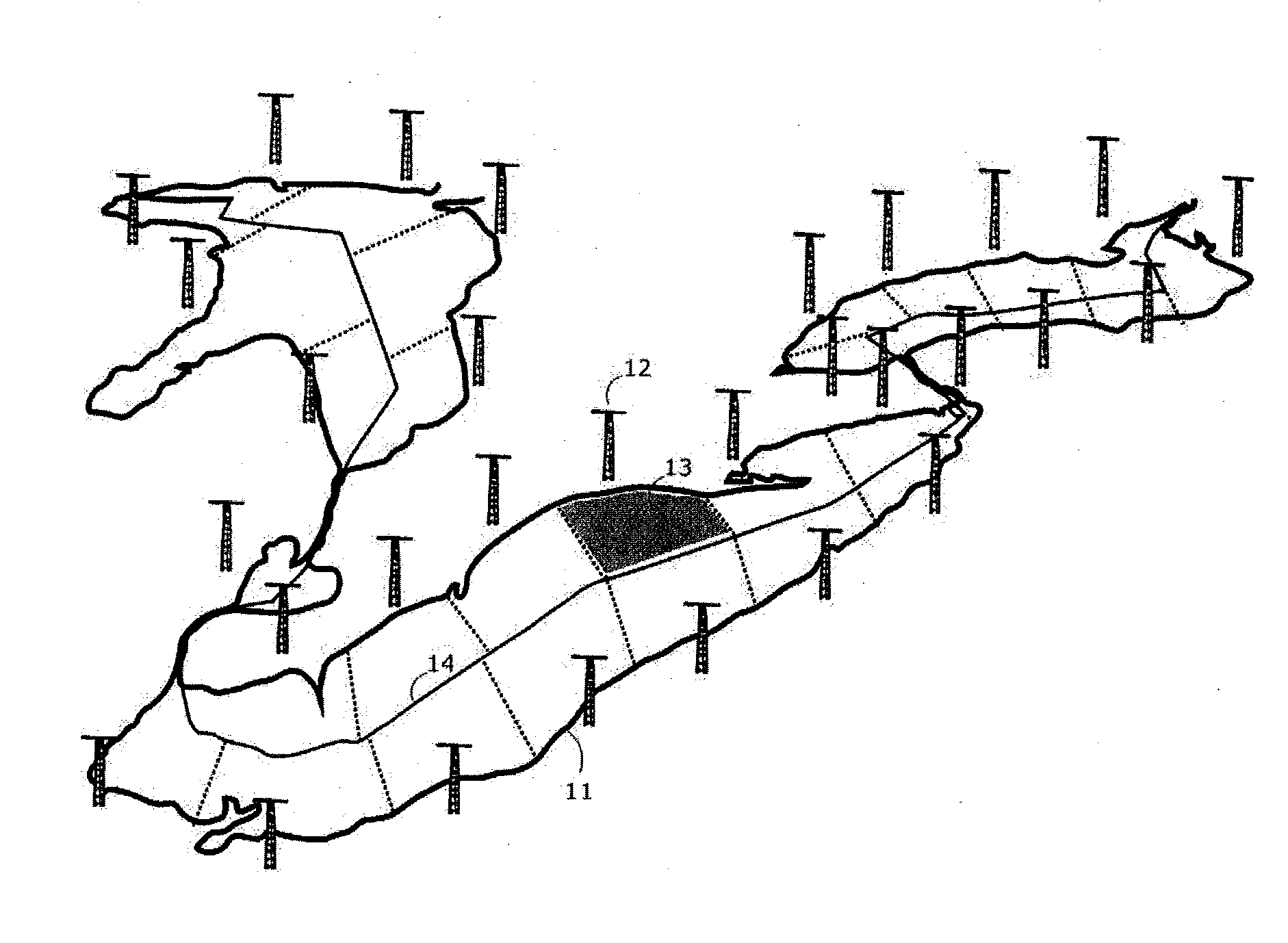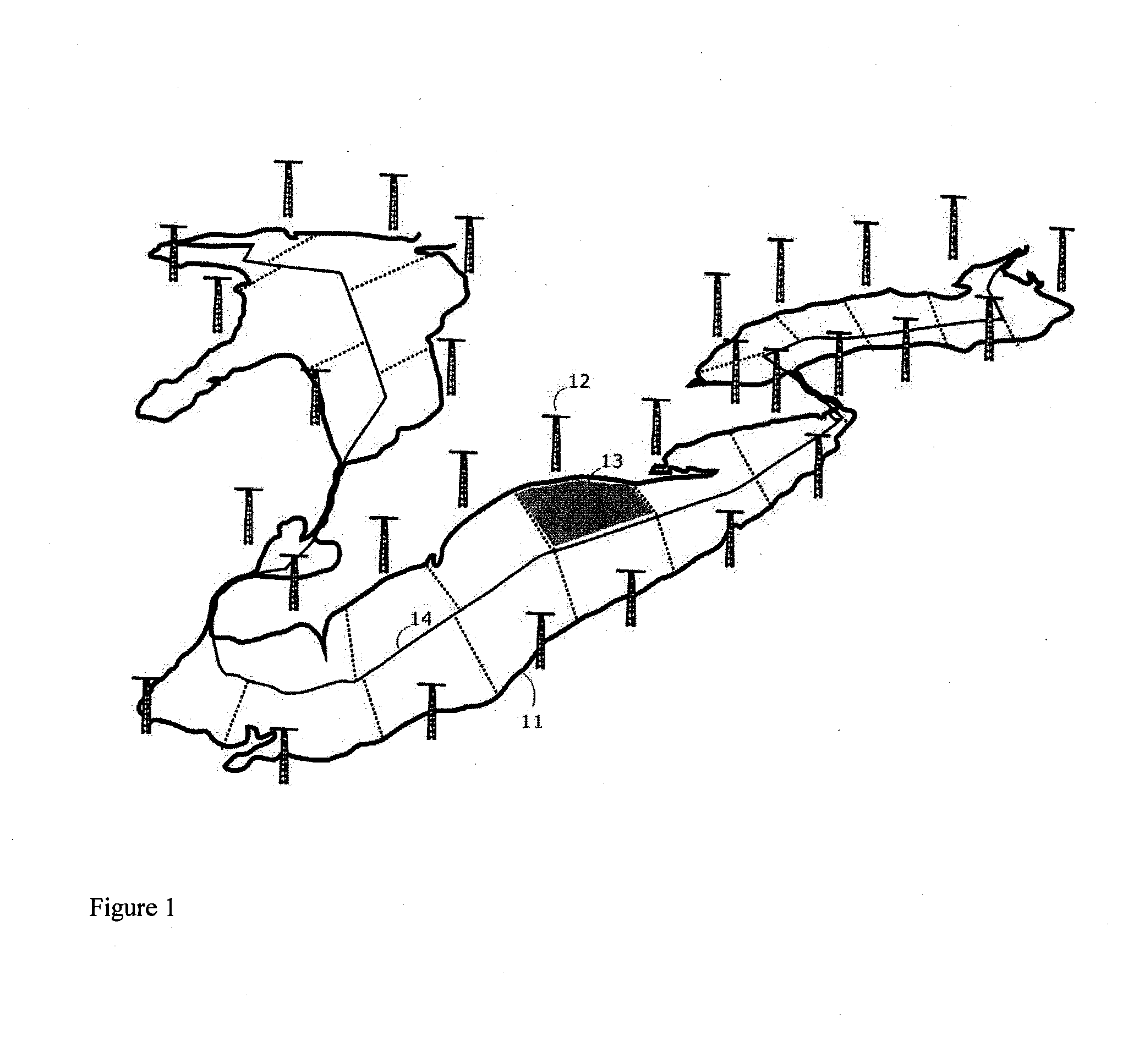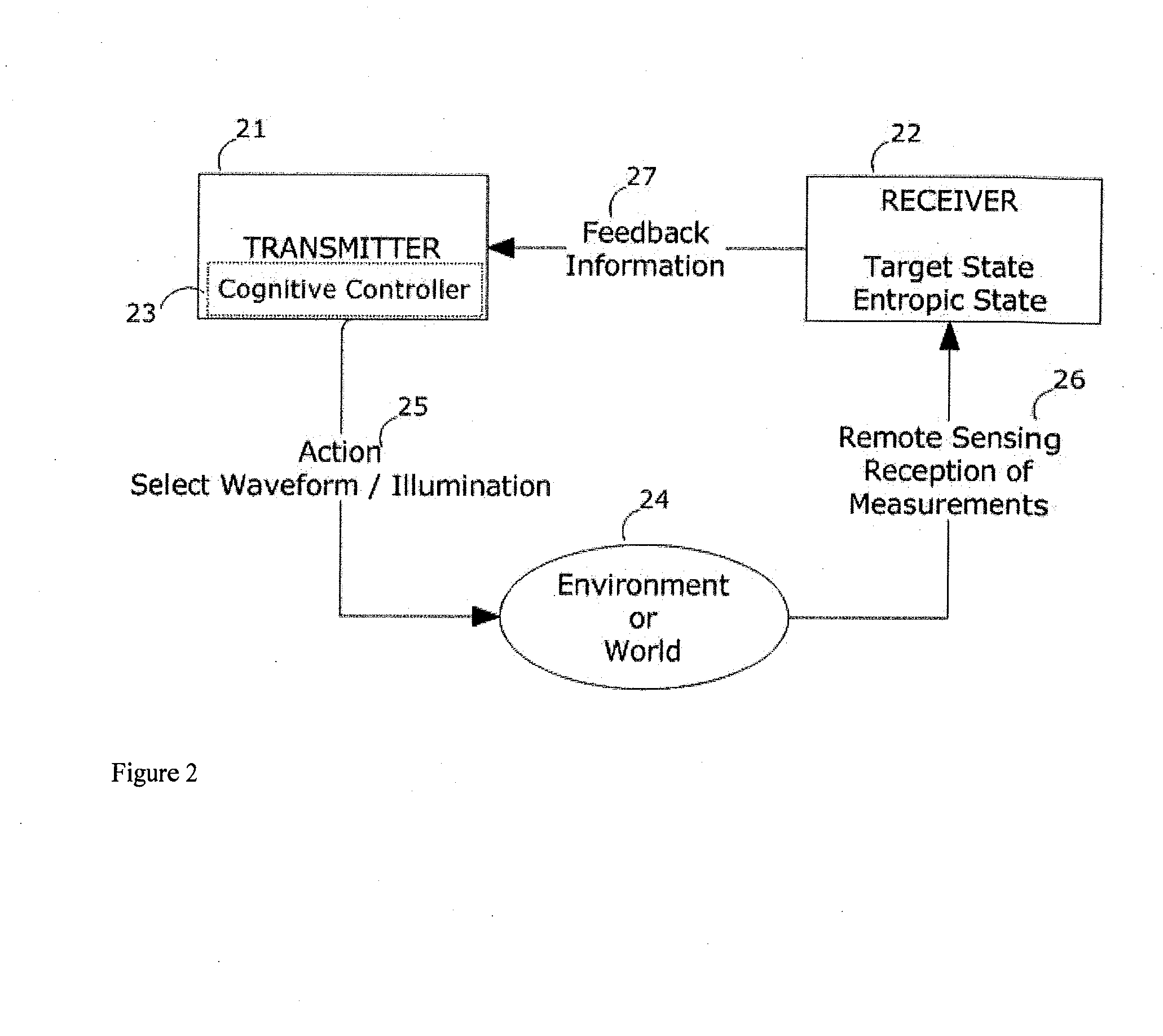Device & method for cognitive radar information network
a radar information network and cognitive technology, applied in the field of radar systems and radar information networks, can solve problems such as operator overload and new operator problems not encountered
- Summary
- Abstract
- Description
- Claims
- Application Information
AI Technical Summary
Benefits of technology
Problems solved by technology
Method used
Image
Examples
Embodiment Construction
[0099]The wide-area, combined surveillance volume 11 covered by the CRIN is illustrated in FIG. 1. The CRIN is made up of a number of radar nodes 12 whose individual surveillance volumes combine to provide the wide-area coverage needed for the example Great Lakes region which contains the Canada / United States border 14 running through the middle of it as shown in FIG. 1. The combined surveillance volume 11 is preferably divided up into a number of virtual, geographical, attention cells 13 as illustrated in FIG. 1. The CRIN operates with a baseline radar configuration and performance (the operating baseline may change with season). Attention is applied to one or more requested cells 13 while intelligence ensures that surveillance in the remaining cells 13 continues to function robustly. Robustness preferably includes both global and local cell metrics—i.e. global performance is controlled so that it will not degrade below a certain threshold; and individual local cells are controlled...
PUM
 Login to View More
Login to View More Abstract
Description
Claims
Application Information
 Login to View More
Login to View More - R&D
- Intellectual Property
- Life Sciences
- Materials
- Tech Scout
- Unparalleled Data Quality
- Higher Quality Content
- 60% Fewer Hallucinations
Browse by: Latest US Patents, China's latest patents, Technical Efficacy Thesaurus, Application Domain, Technology Topic, Popular Technical Reports.
© 2025 PatSnap. All rights reserved.Legal|Privacy policy|Modern Slavery Act Transparency Statement|Sitemap|About US| Contact US: help@patsnap.com



